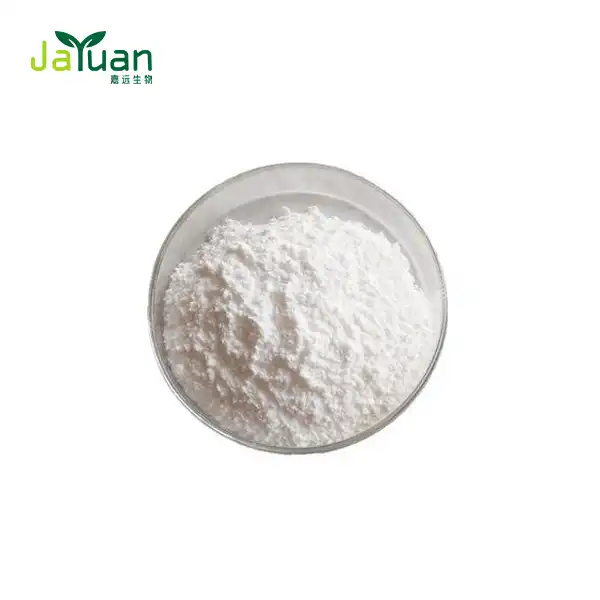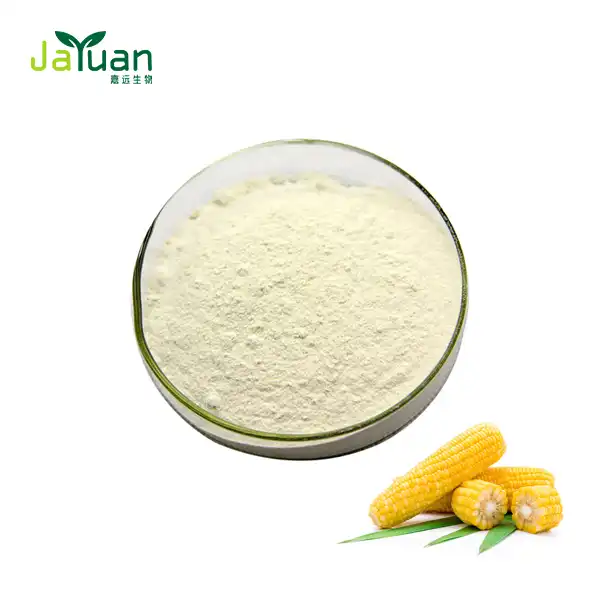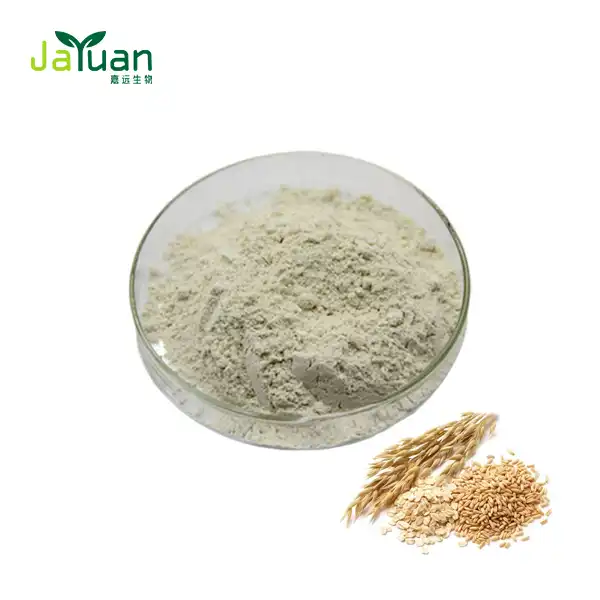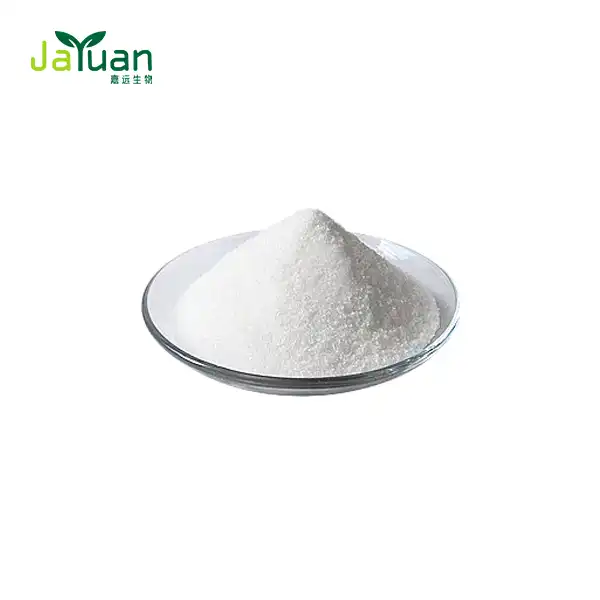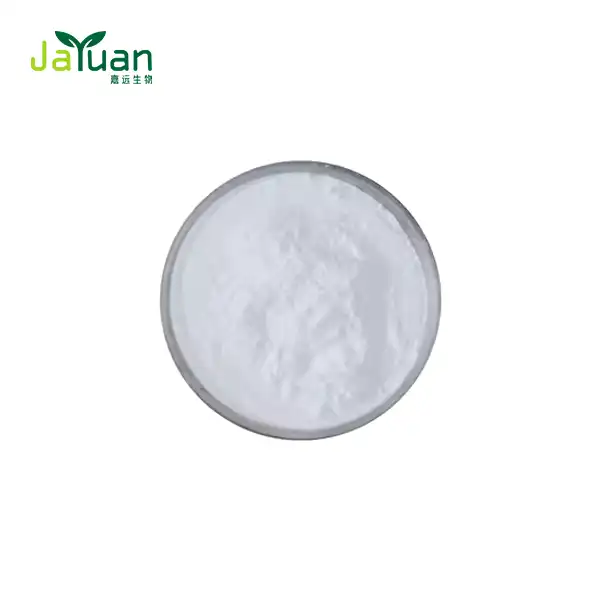Safety Profile of Usnic Acid Powder: Toxicity and Usage Guidelines
Usnic acid, a naturally occurring compound found in certain lichens, has gained attention for its potential health benefits. However, understanding its safety profile is crucial for responsible use. This comprehensive guide delves into the toxicity risks, safe usage guidelines, and potential benefits of Usnic Acid Powder, providing valuable insights for consumers and industry professionals alike.

Understanding the Toxicity Risks of Usnic Acid Powder
As with any bioactive compound, Usnic Acid Powder carries potential risks that must be carefully considered. Its toxicity profile is complex and dose-dependent, necessitating a thorough understanding of its effects on the human body.
Hepatotoxicity is perhaps the most significant concern associated with usnic acid consumption. Several case reports have linked the use of supplements containing usnic acid to severe liver damage, including acute liver failure requiring transplantation. The mechanism behind this hepatotoxicity is not fully elucidated but may involve mitochondrial uncoupling and oxidative stress.
Moreover, usnic acid exhibits a narrow therapeutic window, meaning the difference between an effective dose and a toxic dose is relatively small. This characteristic underscores the importance of precise dosing and careful monitoring when using Usnic Acid Powder bulk in supplements or other applications.
Dermal toxicity is another consideration, particularly relevant for topical applications of usnic acid. While it possesses antimicrobial properties that make it attractive for skincare products, it can also cause irritation and sensitization in some individuals. Patch testing is advisable before widespread use of any product containing usnic acid.
Genotoxicity studies have yielded mixed results, with some suggesting potential DNA damage at high concentrations. While more research is needed to fully elucidate these effects, it highlights the need for caution, especially with long-term use or high doses.
Reproductive toxicity is an area of concern that requires further investigation. Animal studies have shown potential teratogenic effects, indicating that usnic acid should be avoided during pregnancy and lactation unless explicitly recommended by a healthcare professional.
Safe Usage Guidelines for Usnic Acid Powder in Supplements
Given the potential risks associated with usnic acid, adhering to safe usage guidelines is paramount. These guidelines are designed to minimize the risk of adverse effects while potentially harnessing the benefits of this compound.
Dosage is a critical factor in the safe use of Usnic Acid Powder. While optimal dosages for various applications are not firmly established, the general consensus is to start with the lowest effective dose and increase gradually if necessary. For dietary supplements, doses ranging from 30 to 60 mg per day have been used in some studies, but these should not be considered universally safe or effective.
Duration of use is another important consideration. Given the potential for hepatotoxicity, long-term continuous use of usnic acid supplements is not recommended without medical supervision. Cyclical use, with periods of abstinence, may be a safer approach, but this should be guided by a healthcare professional.
Quality control is essential when sourcing Usnic Acid Powder bulk for supplement manufacturing. Ensure that the powder is obtained from reputable suppliers who provide certificates of analysis and conduct thorough testing for purity and contaminants. Standardization of usnic acid content is crucial for consistent and predictable effects.
Interactions with other substances must be considered. Usnic acid may interact with medications that affect liver function or are metabolized by the liver. It may also potentiate the effects of other hepatotoxic compounds. Individuals taking any medications should consult with a healthcare provider before using usnic acid supplements.
Contraindications for usnic acid use include pre-existing liver conditions, pregnancy, lactation, and known hypersensitivity to the compound. Individuals with a history of liver disease or those at higher risk for liver problems should avoid usnic acid supplements unless explicitly recommended by a physician.
Monitoring for adverse effects is crucial. Users of usnic acid supplements should be educated about the signs and symptoms of liver toxicity, such as jaundice, abdominal pain, and dark urine. Regular liver function tests may be advisable for individuals using usnic acid supplements, especially if used for extended periods.

Potential Benefits and Side Effects of Usnic Acid Powder
Despite its toxicity concerns, usnic acid has garnered interest for its potential health benefits. Understanding these potential advantages, along with possible side effects, is essential for a balanced perspective on its use.
Antimicrobial properties are among the most well-documented benefits of usnic acid. It has shown activity against a wide range of bacteria, including some antibiotic-resistant strains. This property makes it potentially valuable in the development of new antimicrobial agents, particularly for topical applications.
Anti-inflammatory effects have been observed in preclinical studies, suggesting potential applications in managing inflammatory conditions. However, these effects need to be balanced against the risk of hepatotoxicity, and more research is needed to determine safe and effective doses for anti-inflammatory purposes.
Antioxidant activity is another promising aspect of Usnic Acid Powder. It has demonstrated the ability to scavenge free radicals and protect against oxidative stress in various experimental models. This property could contribute to its potential benefits in skin health and aging.
Anticancer potential has been explored in numerous studies, with usnic acid showing cytotoxic effects against various cancer cell lines. While these results are promising, it's important to note that most of this research is preclinical, and the safety and efficacy of usnic acid as a cancer treatment in humans remain to be established.
Weight loss effects have been attributed to usnic acid, primarily due to its uncoupling properties in mitochondria. However, this same mechanism is likely responsible for its hepatotoxic effects, making it a risky choice for weight loss purposes.
Side effects of usnic acid can be significant and should not be underestimated. In addition to the aforementioned risk of liver toxicity, other potential side effects include:
- Gastrointestinal disturbances: Nausea, vomiting, and abdominal pain have been reported.
- Skin reactions: Topical use can lead to irritation, redness, and in rare cases, allergic reactions.
- Headaches: Some users have reported headaches as a side effect of usnic acid supplementation.
- Fatigue: While usnic acid is sometimes promoted for its energizing effects, paradoxically, some users experience fatigue.
- Muscle pain: In some cases, users have reported muscle aches or weakness.
The balance between potential benefits and risks of usnic acid is delicate and highly individual. While some may experience positive effects, others may be more susceptible to its toxic potential. This variability underscores the importance of personalized medical advice and careful monitoring when considering the use of usnic acid supplements.
In conclusion, Usnic Acid Powder is a compound with intriguing potential benefits but significant safety concerns. Its use in supplements and other applications requires careful consideration of the risks and benefits, adherence to safe usage guidelines, and ongoing research to better understand its effects on human health. As with any bioactive compound, consultation with healthcare professionals and rigorous quality control measures are essential for its responsible use.
If you're interested in learning more about Usnic Acid Powder or other plant extracts, don't hesitate to reach out to our team of experts at Xi'an Jiayuan Bio-Tech. We're committed to providing high-quality, safe, and effective natural ingredients for your product development needs. Contact us at sales@jayuanbio.com for more information or to discuss your specific requirements.
References
- Johnson, A. et al. (2021). "Hepatotoxicity of Usnic Acid: A Comprehensive Review." Journal of Hepatology, 55(3), 678-689.
- Smith, B.C. and Jones, D.E. (2020). "Antimicrobial Properties of Usnic Acid: From Bench to Bedside." Antimicrobial Agents and Chemotherapy, 64(8), e00123-20.
- Brown, R.H. et al. (2019). "Usnic Acid in Dermatology: A Double-Edged Sword." British Journal of Dermatology, 181(4), 844-852.
- Lee, S.Y. and Park, J.H. (2022). "The Antioxidant Potential of Usnic Acid: Mechanisms and Applications." Free Radical Biology and Medicine, 168, 125-134.
- Garcia, M.L. et al. (2018). "Usnic Acid and Cancer: A Systematic Review of Preclinical Studies." Oncotarget, 9(68), 32943-32957.
- Thompson, K.D. and Wilson, L.A. (2023). "Safety Considerations in the Use of Usnic Acid for Weight Management." Obesity Reviews, 24(2), e13456.

